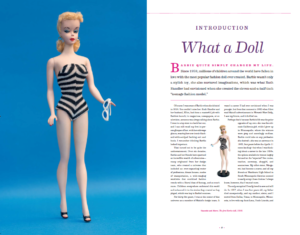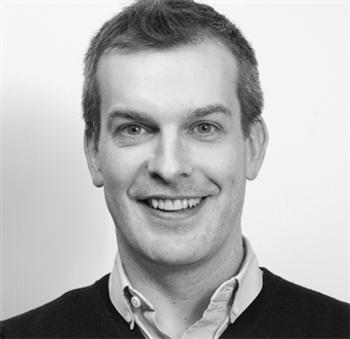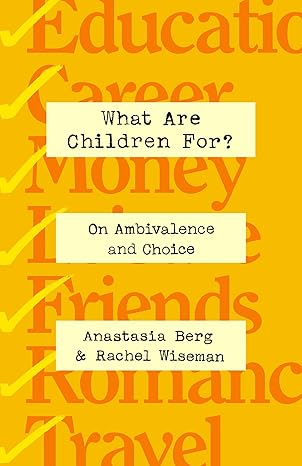A dazzling celebration of the clothes that made America’s favorite doll and the incredible woman behind them, timed to the movie release of Barbie, starring Margot Robbie and Ryan Gosling and directed by Greta Gerwig.
DRESSING BARBIE
A Celebration of the Clothes That Made America’s Favorite Doll and the Incredible Woman Behind Them
by Carol Spencer
Harper, March 2019

If you’ve ever had a Barbie doll, or you know someone who did, chances are that Barbie was dressed in one of the thousands of designs created by Carol Spencer during her unparalleled reign as a Barbie fashion designer spanning more than thirty-five years.
Illustrated with more than 100 full-color photographs, including many never-before-seen images of rare and one-of-a-kind pieces from Spencer’s private archive, Dressing Barbie is a treasure trove of some of the best and most iconic Barbie looks from the early 1960s until the late 1990s. Along with behind-the-scenes stories of how these designs came to be, Spencer reminisces about her thrilling time at Mattel working with legendary figures such as Ruth Handler, Barbie’s creator, and Charlotte Johnson, the original Barbie designer, for a full, inside look into life with the beloved doll. Over the course of her career, Spencer won many accolades. She was the first designer to have her signature on the doll, the first to go on a signing tour, the first to design a limited-edition Barbie for collectors, and the designer of the biggest-selling Barbie of all time. Now, she is the first member of the inner circle to reveal the fashion world of the quintessential California girl as never before.
Carol Spencer worked for several years as a fashion designer and illustrator in the apparel industry before beginning her illustrious career at Mattel as a fashion designer for Barbie in 1963. For thirty-five years, Carol created thousands of designs for the iconic doll and watched as Mattel grew from a small business into a multi-national conglomerate. From seeing Paris fashion shows to running the Hong Kong design group in the 1980s, Carol has been around the world with Barbie. Since retiring in 1998, she has continued to reside in Los Angeles with her impressive personal collection of Barbie dolls.





 It’s an international tale that takes us from Mozambique to Australia, from Hong Kong to New York, and of course, inside the hushed, marble corridors of Zurich’s banking elite.
It’s an international tale that takes us from Mozambique to Australia, from Hong Kong to New York, and of course, inside the hushed, marble corridors of Zurich’s banking elite. GOING NUCLEAR will be an exploration of the immense power in the centre of the atom, the areas of our world that it touches, and the potential it has to solve the biggest problems our species faces. The book retraces our relationship with nuclear through the Nuclear Revolution of the early 20th century and look towards the Nuclear Renaissance that could — and should — ensue over the coming decades. Gregory argues convincingly that there is no net zero without nuclear power.
GOING NUCLEAR will be an exploration of the immense power in the centre of the atom, the areas of our world that it touches, and the potential it has to solve the biggest problems our species faces. The book retraces our relationship with nuclear through the Nuclear Revolution of the early 20th century and look towards the Nuclear Renaissance that could — and should — ensue over the coming decades. Gregory argues convincingly that there is no net zero without nuclear power. The thrilling true story of Agent A12, the first enemy of the Nazis In public life, Dr. Winthrop Picard Bell was a Harvard philosophy professor and wealthy businessman. As MI6 Secret Agent A12, he evaded gunfire and shook pursuers to break open the emerging Nazi conspiracy in electrifying 1919 Berlin. His reports, the first warning of the Nazi plot for WWII, went directly to the man known as C, the mysterious founder of MI6, and to prime ministers. But a powerful fascist politician quietly worked to suppress his alerts. Nevertheless, his intelligence sabotaged the Nazis in ways only now revealed. Bell became a spy once again in the face of WWII. In 1939, he was the first to crack Hitler’s deadliest secret code: the Holocaust. At that time the Führer was a popular politician who said he wanted peace. Could anyone believe Bell’s shocking warning? Fighting an epic intelligence war from Ukraine, Russia, and Poland to France, Germany, Canada and Washington, D.C., A12 was the real-life 007, waging a single-handed fight against madmen bent on destroying the world. Without Bell’s astounding courage, the Nazis might just have won the war.
The thrilling true story of Agent A12, the first enemy of the Nazis In public life, Dr. Winthrop Picard Bell was a Harvard philosophy professor and wealthy businessman. As MI6 Secret Agent A12, he evaded gunfire and shook pursuers to break open the emerging Nazi conspiracy in electrifying 1919 Berlin. His reports, the first warning of the Nazi plot for WWII, went directly to the man known as C, the mysterious founder of MI6, and to prime ministers. But a powerful fascist politician quietly worked to suppress his alerts. Nevertheless, his intelligence sabotaged the Nazis in ways only now revealed. Bell became a spy once again in the face of WWII. In 1939, he was the first to crack Hitler’s deadliest secret code: the Holocaust. At that time the Führer was a popular politician who said he wanted peace. Could anyone believe Bell’s shocking warning? Fighting an epic intelligence war from Ukraine, Russia, and Poland to France, Germany, Canada and Washington, D.C., A12 was the real-life 007, waging a single-handed fight against madmen bent on destroying the world. Without Bell’s astounding courage, the Nazis might just have won the war.